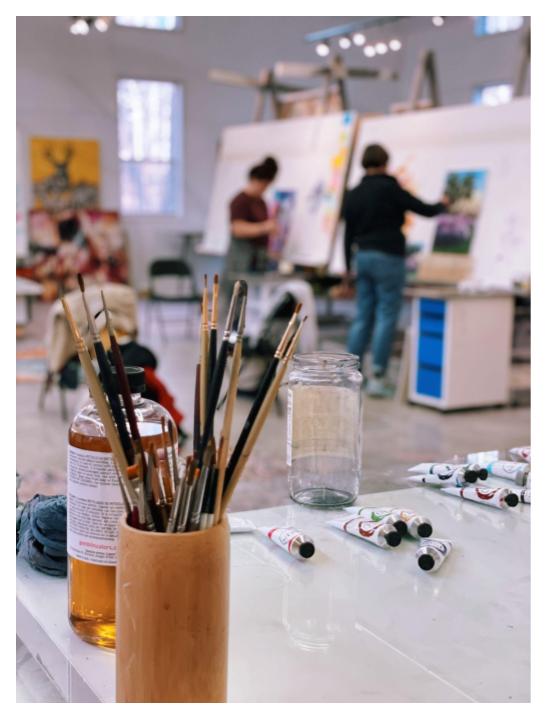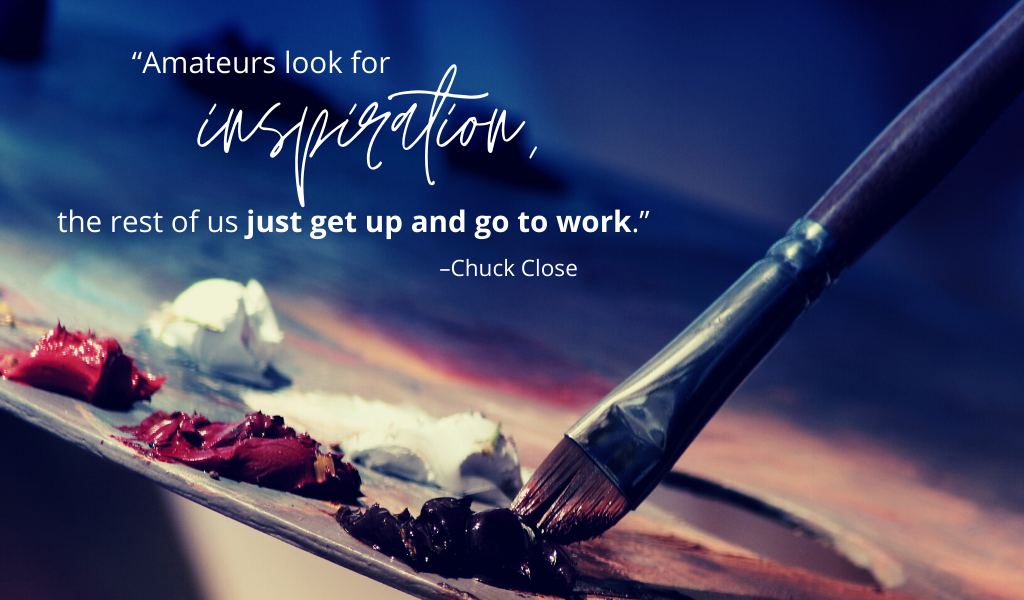4 Tips on How to Transition from a Hobby Artist to Professional Artist

Photo caption: It’s important to get into the habit of painting everyday if you want to make the transition from hobbyist to a working, professional artist. Photo courtesy of MAI.
It’s your dream! You’re tired of your regular 9-to-5 job and you’re ready to take the big leap and become a professional artist!
Great! Twirl the magic wand and Voilà!
Well, not quite.
If only it were that easy… The reality is while it is totally possible to become a professional artist - many of our Mastery Program graduates already have - it does take work and some know-how.
However, if you’re excited and willing to roll up your sleeves and do this, we’re here to help you make the transition from hobby artist to professional artist. Here are four things you should keep in mind on your journey.
1. It Starts In Your Mind
Your mindset has a huge influence on who you are and what you’ll become. If you believe that you cannot change...seriously, in real life, at the core of your beliefs, you simply don’t think you can change, then you can’t.
There’s a psychological reason for this, according to Psychology Today. Your beliefs influence the decisions you make. For example, if you believe that you aren’t qualified for a job, would you apply for it? It’s likely that you wouldn’t.
The same is true for becoming a professional artist. You must believe that you can begin to sell your work and make your living as an artist long before you put brush to canvas. Additionally, it’s likely that you’ll have to revisit this work again and again. In other words, depending on what’s going on in your life, you may have to revisit your mindset to make sure it’s not holding you back. It’s the belief that you can continue to grow and develop into a smarter, more skilled individual.
So, it’s time to change your mindset. You have a 9-to-5 job that you want to quit but for many possible reasons, you can’t right now.
No worries. Just change your mindset. Make your art becomes your #1 job in your mind instead of your 9-to-5. Push the other job to a secondary position and eventually, it will be secondary...and eventually non-existent. You’ll have transitioned to a place where your art IS your #1 job.
Now let’s get a little more practical, shall we?
2. It’s Not Based On Feelings
A true professional artist doesn’t just paint when the lightening bolt of inspiration strikes. Artist Chuck Close states that “Amateurs look for inspiration, the rest of us just get up and go to work.”

Hobby painters wait expectantly for some amazing idea that they can paint. So, the paints, brushes, and canvases wait.
Professional artists cannot do that. It IS their job so they need to just do it. Whether you feel like it or not, you just have to paint...every day...for several hours a day...just paint! You have to do your best even when you don’t feel like it if you want to learn how to become a professional artist.
3. Find Some Tricks to Overcome Boredom
When you’re painting full time, as in 40 hours per week, you may have times when you’re bored or at a loss of what to paint. It does happen. But the simple act of being professional, getting up and going to work (paint) can be the very thing you need to be inspired.
Elli Milan tricks her brain by setting a time limit to get to finish a work. She loves the end result and can get bogged down with the in-between process. So she sets a time limit—in three hours I’ll finish this piece.
Dimitra Milan often has multiple pieces going at the same time. If she gets bored with the subject matter of one piece, she quickly moves on to another. That switch helps her mind wake up and lets her brushes flow with renewed energy.
Although it’s true as we said, that you just need to do it—to paint—getting inspired and staying inspired is still important. There are so many tricks that work to push through the boredom and fuel your passion to paint. What tricks do you use?
4. Know Your “Why?”
Elli points out that ultimately, the core thing you need to know to transition from hobby artist to professional artist is to know your “Why?” You have to understand your motivation, the thing that drives you, the reason you get up every day to paint. If you don’t know the reason, the transition will be brutal, possibly even futile.
You also have to ask yourself…
- How bad do I want this?
- How bad do I want to become a professional artist?
- How important is becoming a professional artist to me?
- How hard will I fight to become a professional artist?
- What would it take for me to quit painting?
- How many rejections will it take for me to quit painting?
When you get to the point where NOTHING can stop you from tenaciously being dedicated to your pursuit of becoming a professional artist, then you’ll know that IT WILL HAPPEN.
Need more help in your quest to become a professional artist? Then think about trying a FREE trial membership to Art Club. It’s a place where you can connect with other artists who have the passion and drive to become professional artists and to learn more about your craft.
Here Are More Resources To Help You On Your Journey
Art Resources: 1,000s of FREE Art & Architecture. Books to Download
5 Tips for Excelling in Your Online Art Courses
Inspiration for Artists: 5 Tips for Finding Your Creative Groove


